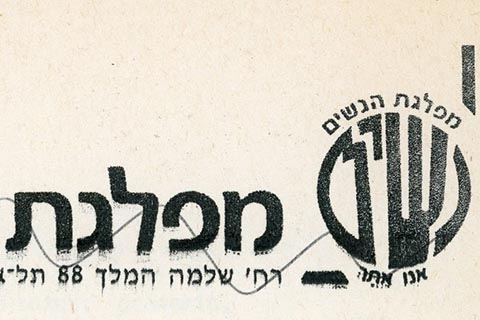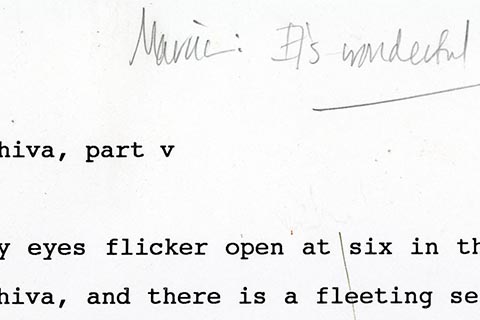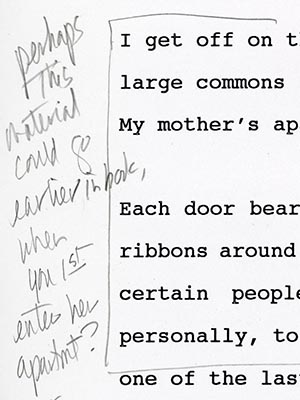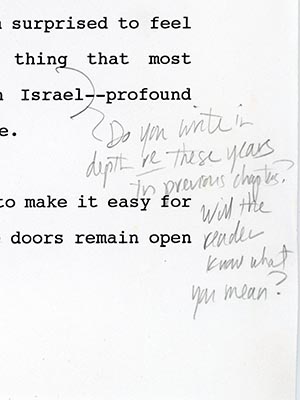Marcia Freedman Papers
June 30, 2017
Description by Jeff Hayes, MLIS candidate at the University of Alabama and Archives and Special Collections intern.
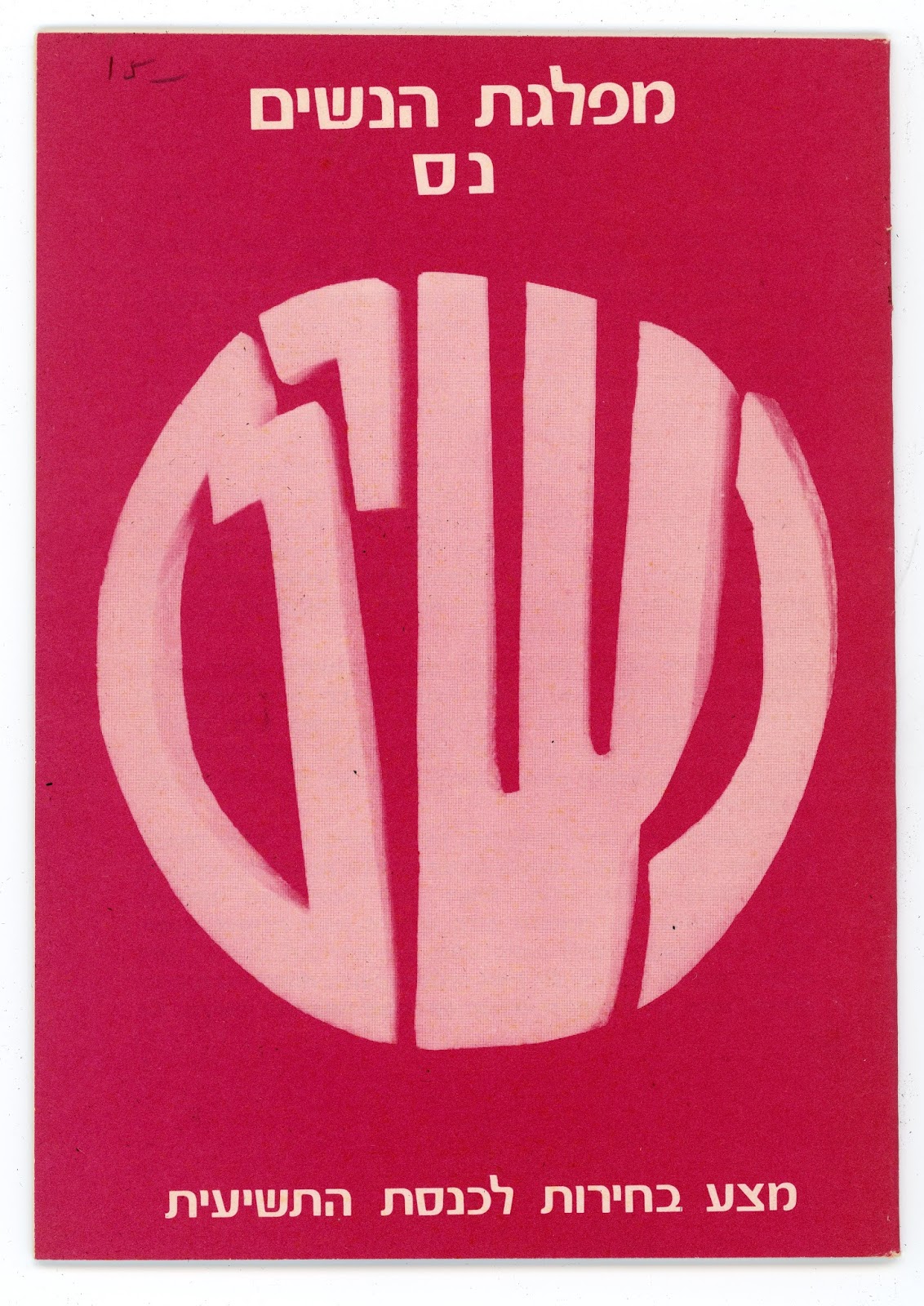 The Marcia Freedman papers represent a fascinating addition to the growing Jewish Feminist Collections at Brandeis University. Recently acquired, processed and now available in the University’s Special Collections, the collection consists of approximately 2.75 linear feet of materials pertaining to Freedman’s life and work as an American-Israeli activist and feminist. While the collection materials range in date from 1968 to 2016, the bulk of the materials relate to Freedman’s time spent in Israel during the 1970s, as well as her return there in the late 1990s.
The Marcia Freedman papers represent a fascinating addition to the growing Jewish Feminist Collections at Brandeis University. Recently acquired, processed and now available in the University’s Special Collections, the collection consists of approximately 2.75 linear feet of materials pertaining to Freedman’s life and work as an American-Israeli activist and feminist. While the collection materials range in date from 1968 to 2016, the bulk of the materials relate to Freedman’s time spent in Israel during the 1970s, as well as her return there in the late 1990s.
Born in Newark, New Jersey in 1938, Freedman earned a BA from Bennington College and an MA from the City College of New York.[1] In 1967, while pursuing a PhD in philosophy, she moved with her family to Israel, just after the Six-Day War. In the early 1970s, Freedman taught philosophy at Haifa University and a course on women in western philosophy at Oranim College. After a brief return to the United States in 1971, she brought her burgeoning interest in and experience with American feminism to Israel.[2]
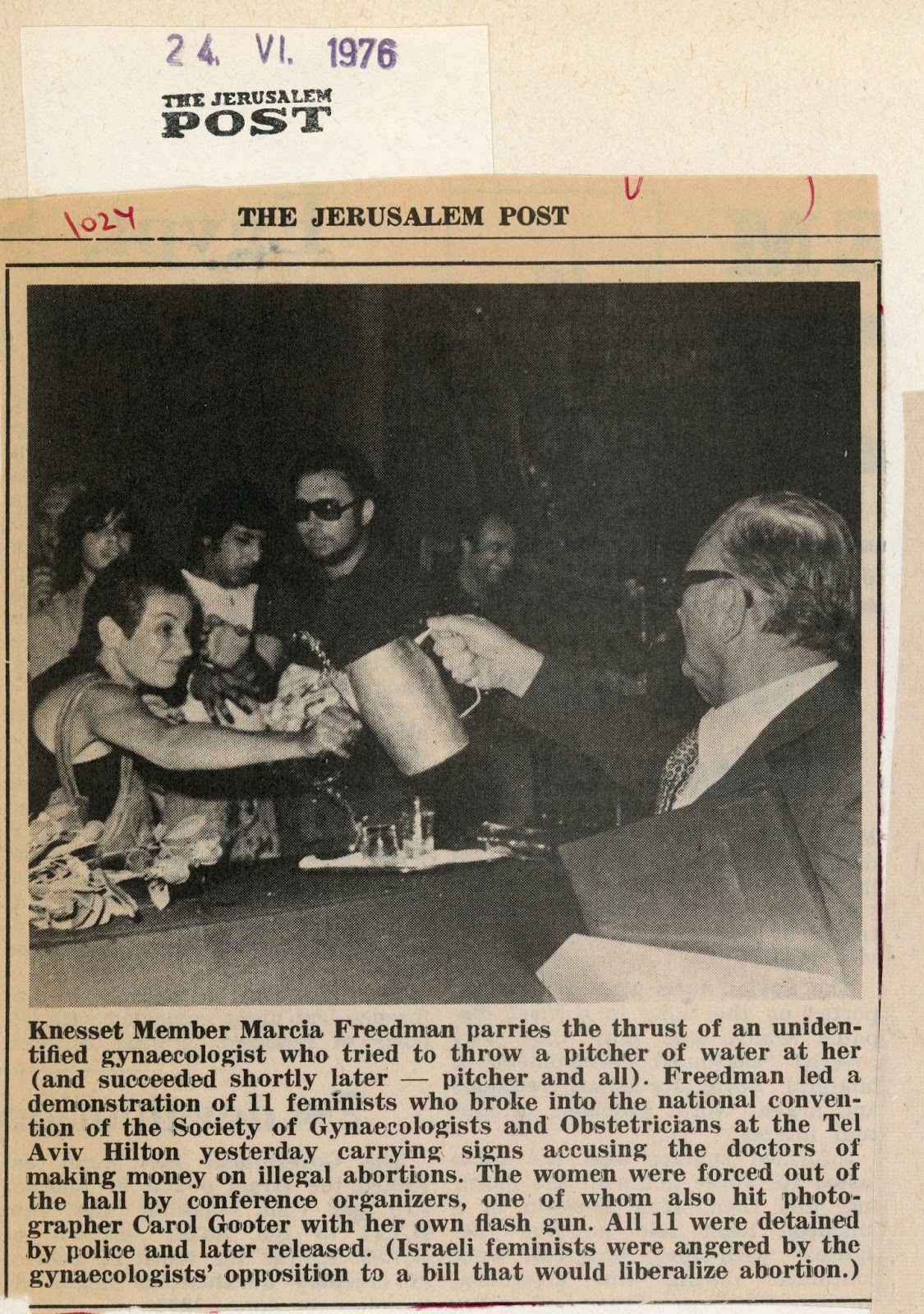 As one of the leaders of the feminist movement in Israel, and the first openly gay person elected to the Knesset (Israel’s national legislature), Freedman fought many uphill battles advocating for women’s rights at a time when men in the Knesset did not take women or women’s issues seriously. During her tenure in the Knesset from 1973 to 1977, Freedman worked tirelessly to bring feminist consciousness to the forefront of Israel’s parliament. Among her many accomplishments, she worked to reform Israel’s restrictive abortion laws, she opened the first battered women’s shelter in Israel, and she co-founded the (now-defunct) Women’s Party. In 1981, Freedman returned to the United States where she continued to raise awareness of Israel and feminist issues.
As one of the leaders of the feminist movement in Israel, and the first openly gay person elected to the Knesset (Israel’s national legislature), Freedman fought many uphill battles advocating for women’s rights at a time when men in the Knesset did not take women or women’s issues seriously. During her tenure in the Knesset from 1973 to 1977, Freedman worked tirelessly to bring feminist consciousness to the forefront of Israel’s parliament. Among her many accomplishments, she worked to reform Israel’s restrictive abortion laws, she opened the first battered women’s shelter in Israel, and she co-founded the (now-defunct) Women’s Party. In 1981, Freedman returned to the United States where she continued to raise awareness of Israel and feminist issues.
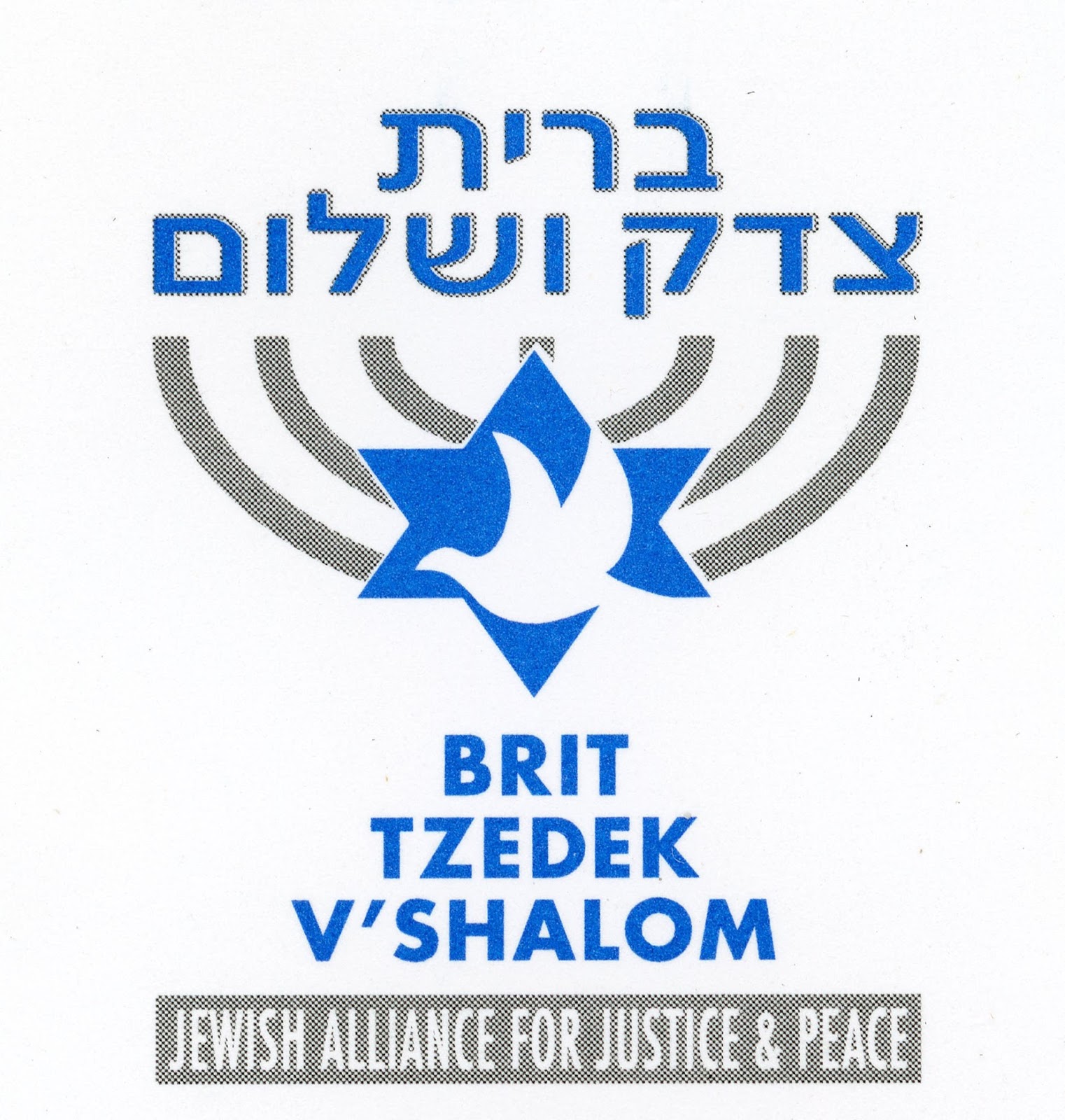 Between 1997 to 2002, she embarked on another series of extended stays in Israel, after which she became the founding president of Brit Tzedek v’Shalom, the American Jewish Alliance for Justice and Peace. This collection follows these different stages of the life and work of an important figure in Jewish feminist history. A wide range of materials is represented in her papers, including newspaper clippings, lecture notes, research files, correspondence, writings by Freedman (of personal, scholarly, and activist nature) and several incomplete (yet intriguing!) manuscripts and typescripts.
Between 1997 to 2002, she embarked on another series of extended stays in Israel, after which she became the founding president of Brit Tzedek v’Shalom, the American Jewish Alliance for Justice and Peace. This collection follows these different stages of the life and work of an important figure in Jewish feminist history. A wide range of materials is represented in her papers, including newspaper clippings, lecture notes, research files, correspondence, writings by Freedman (of personal, scholarly, and activist nature) and several incomplete (yet intriguing!) manuscripts and typescripts.
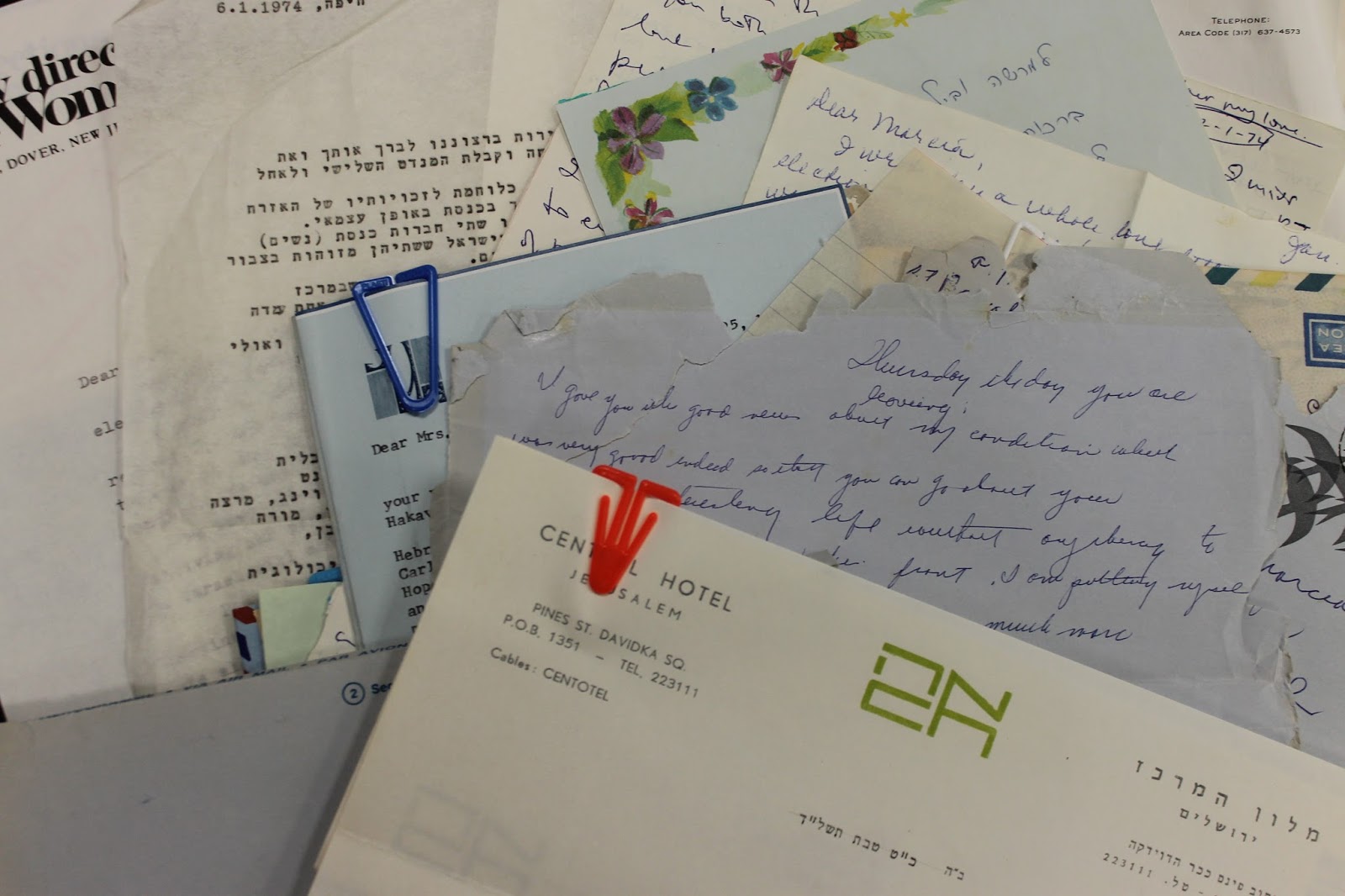 Among the many highlights of this amazing collection are the numerous notes, letters and telegrams Freedman received upon her election to the Knesset in 1973 as a member of the nascent Citizens’ Rights Movement — words of praise and congratulations for her breaking of the gender barrier in Israel’s historically patriarchal government body. As well, there is a series of newspaper clippings related to Freedman’s involvement in the founding of the Jewish feminist movement in Israel, her work as a member of the Knesset and her role as a co-founder of the Women’s Party (1977) in Israel. Also included in this collection are myriad reviews of her memoir “ Exile in the Promised Land” — these are well worth a read as the book seems to have had quite the impact on its readers.
Among the many highlights of this amazing collection are the numerous notes, letters and telegrams Freedman received upon her election to the Knesset in 1973 as a member of the nascent Citizens’ Rights Movement — words of praise and congratulations for her breaking of the gender barrier in Israel’s historically patriarchal government body. As well, there is a series of newspaper clippings related to Freedman’s involvement in the founding of the Jewish feminist movement in Israel, her work as a member of the Knesset and her role as a co-founder of the Women’s Party (1977) in Israel. Also included in this collection are myriad reviews of her memoir “ Exile in the Promised Land” — these are well worth a read as the book seems to have had quite the impact on its readers.
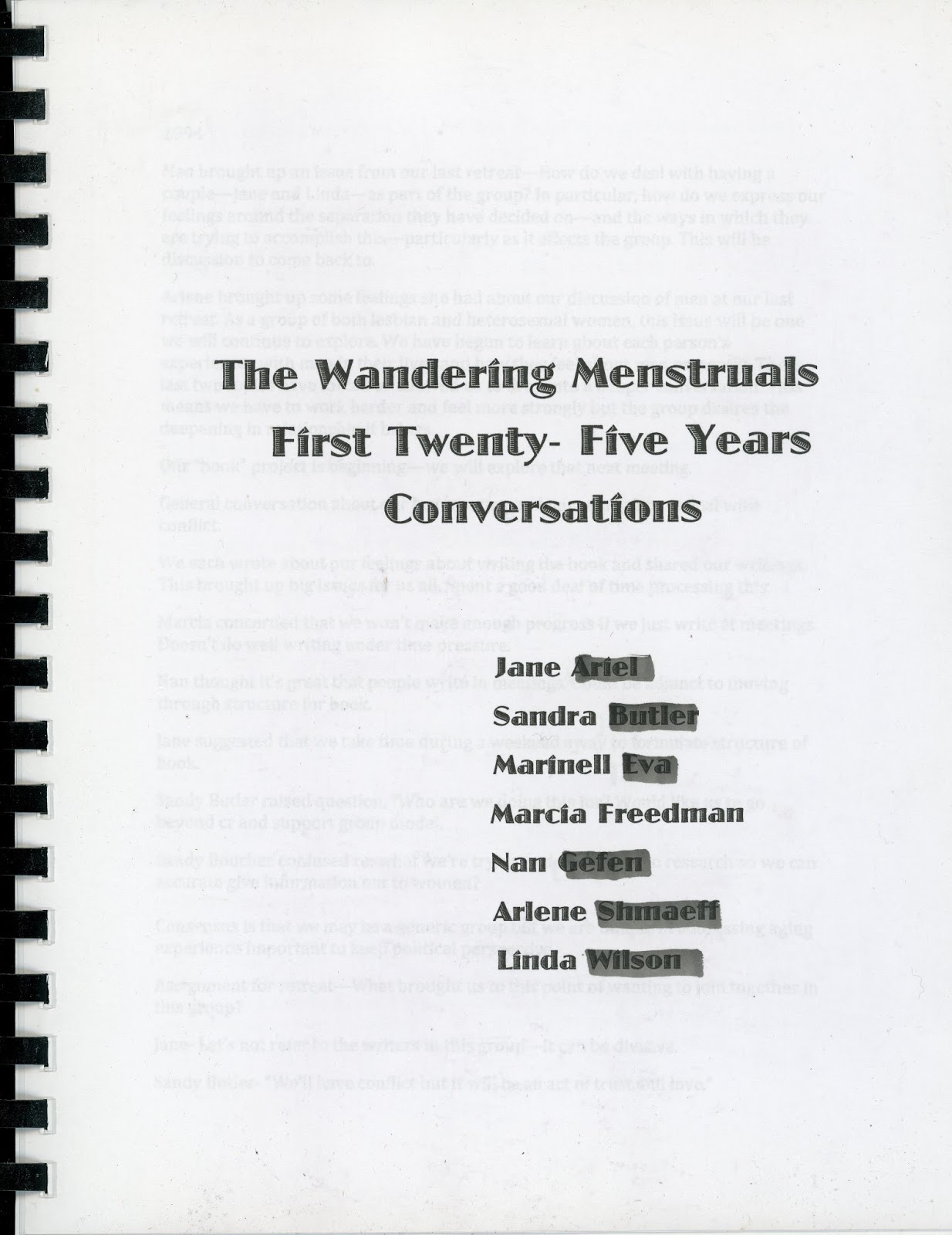 In addition, the collection contains Freedman’s thoughtfully organized typewritten email correspondence about the political climate and women’s peace movement in Israel from 1997 to 2002; her personal journal with commentaries on the Israeli-Palestinian conflict and Jewish feminism; and more than 20 years of transcribed conversations with her support/discussion group for aging women, the Wandering Menstruals. In reading through the many articles and papers Freedman wrote on sexism, feminism, Israel, philosophy, and other topics, researchers can easily gain a better understanding of the evolution and development of Freedman’s feminist and activist ideology, from its earliest stages through her active political career and beyond.
In addition, the collection contains Freedman’s thoughtfully organized typewritten email correspondence about the political climate and women’s peace movement in Israel from 1997 to 2002; her personal journal with commentaries on the Israeli-Palestinian conflict and Jewish feminism; and more than 20 years of transcribed conversations with her support/discussion group for aging women, the Wandering Menstruals. In reading through the many articles and papers Freedman wrote on sexism, feminism, Israel, philosophy, and other topics, researchers can easily gain a better understanding of the evolution and development of Freedman’s feminist and activist ideology, from its earliest stages through her active political career and beyond.
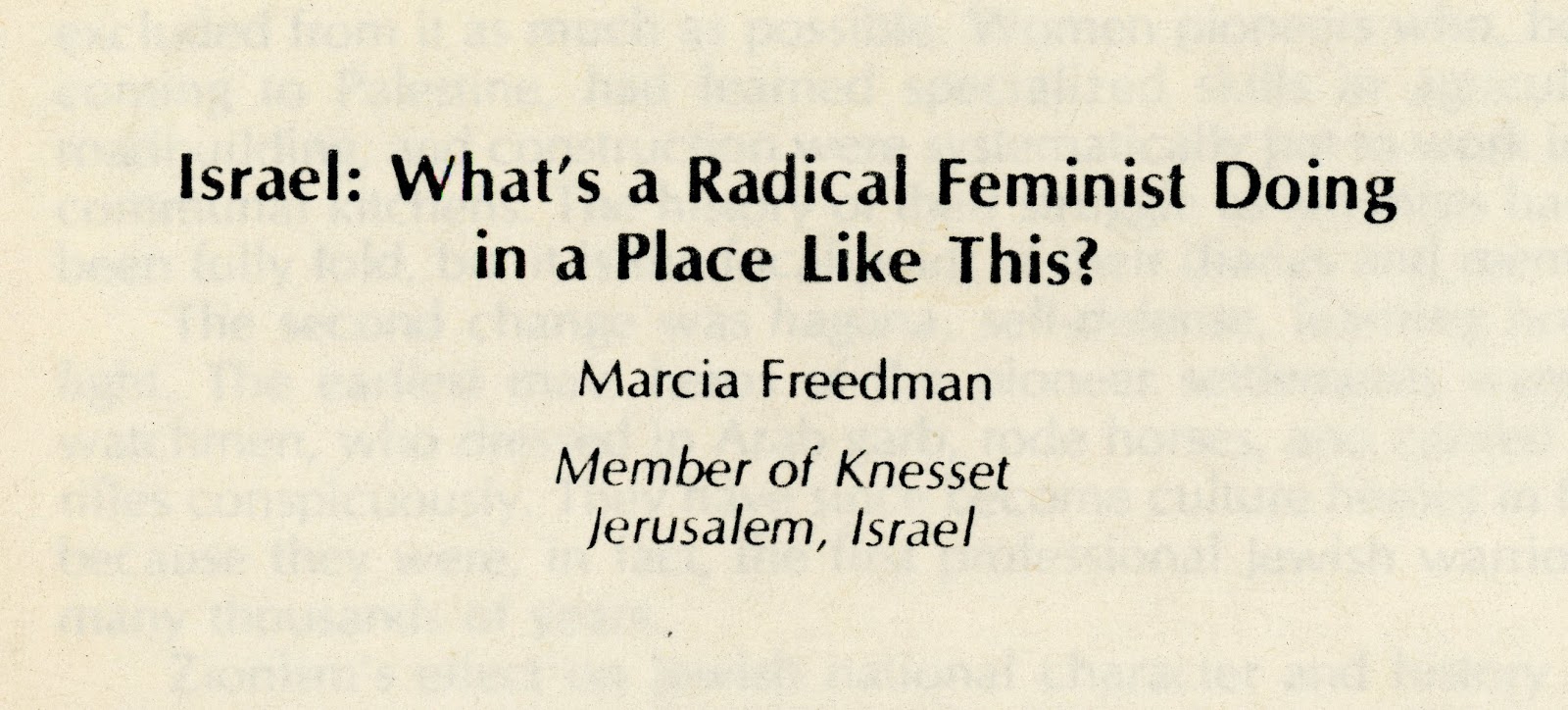 Among some of the other interesting materials in this collection is an incomplete typescript of a play Freedman was developing called “Cybele,” which seems to have been written with a contemporary, humorous feminist perspective on the topic of Cybele, the Anatolian mother of the Gods. Included as well are incomplete manuscripts Freedman wrote on various topics, including a book about her time in Israel from 1997 to 2002; a book entitled The Lady of the Wild Things: A Study in Religion, Sex and Power; and one entitled “Shiva,” which includes notes and comments by Esther Broner. Though these are incomplete, their contents nevertheless shed light on the roles that Judaism, feminism, peace, and Israel have played in Freedman’s life and work.
Among some of the other interesting materials in this collection is an incomplete typescript of a play Freedman was developing called “Cybele,” which seems to have been written with a contemporary, humorous feminist perspective on the topic of Cybele, the Anatolian mother of the Gods. Included as well are incomplete manuscripts Freedman wrote on various topics, including a book about her time in Israel from 1997 to 2002; a book entitled The Lady of the Wild Things: A Study in Religion, Sex and Power; and one entitled “Shiva,” which includes notes and comments by Esther Broner. Though these are incomplete, their contents nevertheless shed light on the roles that Judaism, feminism, peace, and Israel have played in Freedman’s life and work.
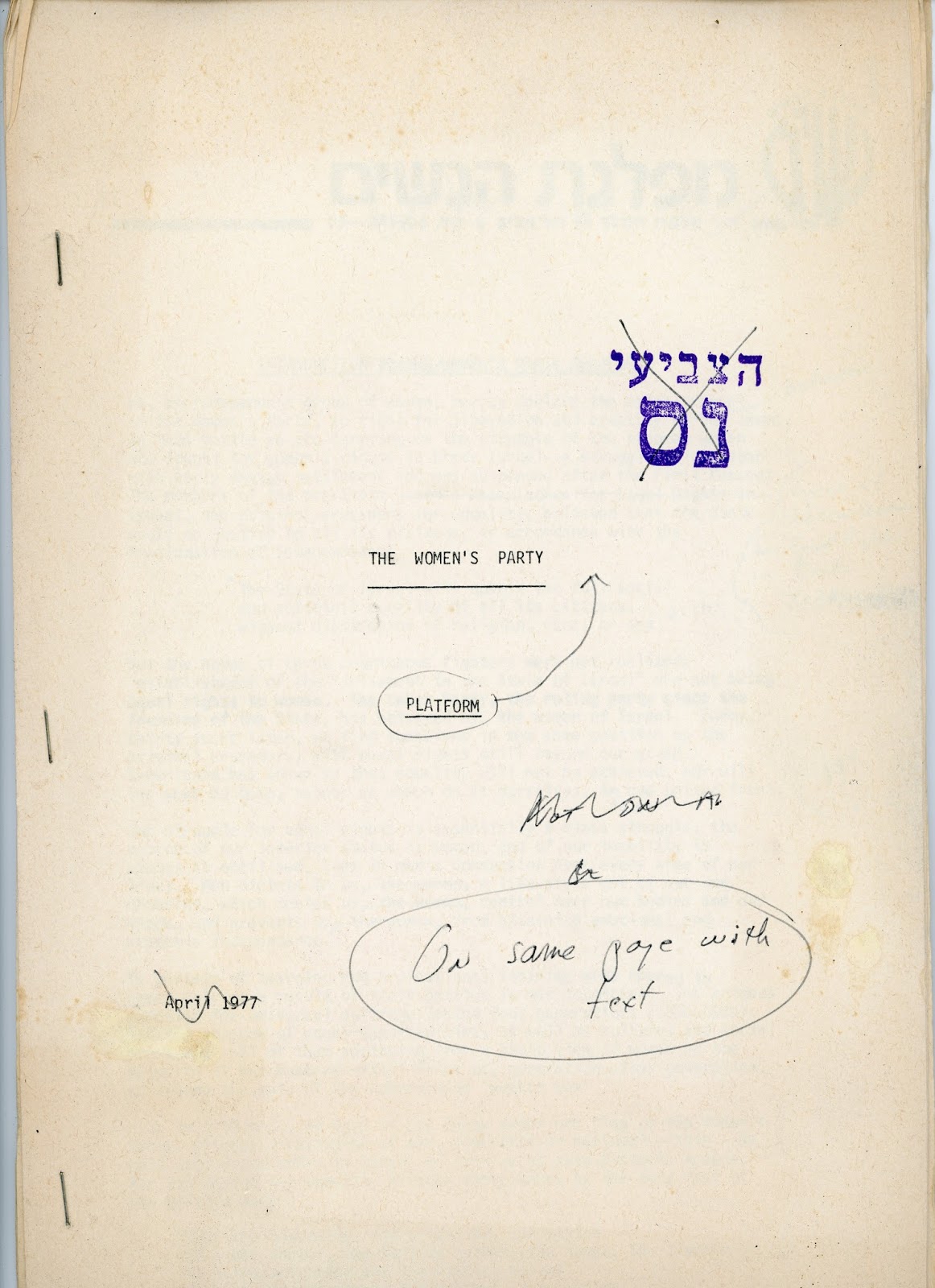 There are, of course, many other materials in the Marcia Freedman papers which are not mentioned in detail here, including research files from her many speaking engagements in the early 2000s, information about the organization for which she served as founding president, Brit Tzedek v’Shalom, and numerous audiovisual and born-digital materials. Needless to say, this collection is but a small testament to the trailblazing life and career of an American-Israeli Jewish feminist and activist named Marcia Freedman. Come to Brandeis University’s Department of Archives and Special Collections to learn more about Marcia Freedman and our growing Jewish Feminist Collections.
There are, of course, many other materials in the Marcia Freedman papers which are not mentioned in detail here, including research files from her many speaking engagements in the early 2000s, information about the organization for which she served as founding president, Brit Tzedek v’Shalom, and numerous audiovisual and born-digital materials. Needless to say, this collection is but a small testament to the trailblazing life and career of an American-Israeli Jewish feminist and activist named Marcia Freedman. Come to Brandeis University’s Department of Archives and Special Collections to learn more about Marcia Freedman and our growing Jewish Feminist Collections.
Footnotes
- The Knesset
- American Jewish Peace Archive
Click on the thumbnails below to see the image full size.
